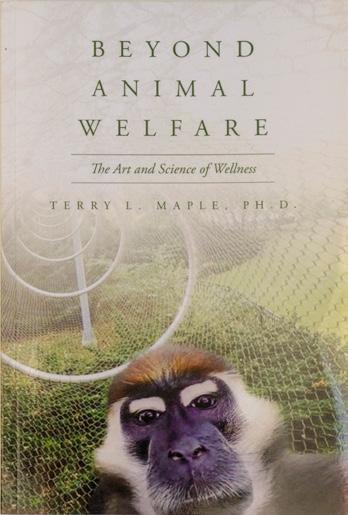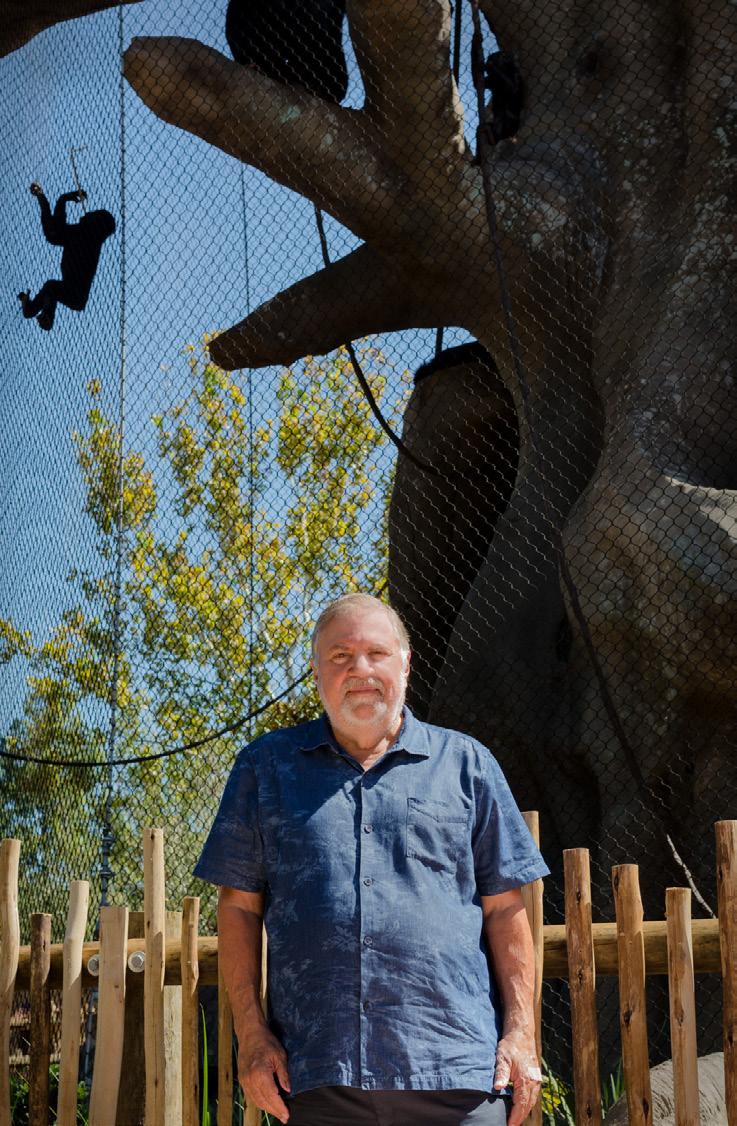
3 minute read
Animal Programs: UNF and Jacksonville Zoo and Gardens A Unique Scientific Partnership
By Terry L. Maple, Ph.D., Director of Wildlife Wellness
As a former college professor at the Georgia Institute of Technology, I organized field trips to local zoos and aquariums and utilized the animal collections to gather data for my research. I never had to build a lab or pay per diem costs for subjects, as the zoo was my living laboratory during the years I was employed at Emory and Tech.
Advertisement
All my students greatly benefited from close contact with charismatic megafauna, and my graduate students were able to generate high quality master’s theses and doctoral dissertations on a variety of taxa. Over the years, we studied the behavior of alligators, anteaters, antelopes, baboons, bonobos, capuchins, chimpanzees, elephants, giant pandas, hippos, gibbons, giraffe, gorillas, lions, mandrills and drills, orangutans, spider monkeys, tamarins, and tigers. With the biodiversity represented in zoos, we were able to practice our trade as comparative psychologists, publishing more than 250 research papers and books.
Zoos and aquariums provide access to scholars in colleges and universities and their students. Academics need zoological collections as no university has the space or the financial resources to manage so many animals. Managed properly in naturalistic displays, zoo and aquarium animals are inspiring sources of knowledge. Students and faculty who study these animals enable zoos to build innovative exhibits and manage with better practices.
Universities need zoos and aquariums that are willing to form strategic partnerships. Jacksonville Zoo and Gardens is fortunate to have colleagues at the University of North Florida (UNF) who share our enthusiasm for wildlife. Both partners are equally dedicated to developing a truly empirical zoological facility.
The Biology and Psychology departments at UNF have committed to educating graduate students with an interest in zoo animals. The zoo provides funding for these students to work with UNF faculty and collaborate with zoo personnel. Two of our former students have moved on to doctoral programs, and two others are working in zoos. We expect great productivity from these young zoo biologists. They help zoo staff by contributing data to solve management and husbandry problems.
Our unique program is the foundation that defines an empirical, evidence-based zoological park. Throughout the zoo, students and faculty collaborate on a variety of projects. Much of this research is connected to our wellness program. We are national leaders in wellness and have mentored other zoos to join us in advancing animal welfare to meet wellness standards. Essentially, wellness is an expansion of welfare standards for animals and people, ecosystems, and communities.
Every future exhibit at our Zoo will be influenced by our wellness operating philosophy. The pandemic challenged zoos and aquariums to create safer, cleaner facilities, so wellness has great relevance in managing today’s zoological parks. The pandemic has changed everything we are doing for our visitors and employees.
The first exhibit to reflect wellness design principles was our award-winning tiger exhibit. Our staff incorporated new ideas such as vertical travel tunnels where tigers could explore the Zoo beyond the confines of their exhibits. African Forest also reflects wellness standards featuring a cognitive work station for enrichment and for evaluating cognitive capacity. We hired Dr. Lindsay Mahovitz to lead our program of research with bonobos, gorillas, and mandrill baboons.
Our wellness program is supported with operating funds and a major donation from an anonymous donor. We are grateful for their support and encouragement. As a model program, we expect many other zoos to create similar partnerships. As we strive to keep building our wellness program, we are proud to spearhead this effort among the best zoos in North America. We invite you to stop by and learn more about our work.

For more information about Dr. Terry Maple and wildlife wellness, check out his book Beyond Animal Welfare on Amazon.









